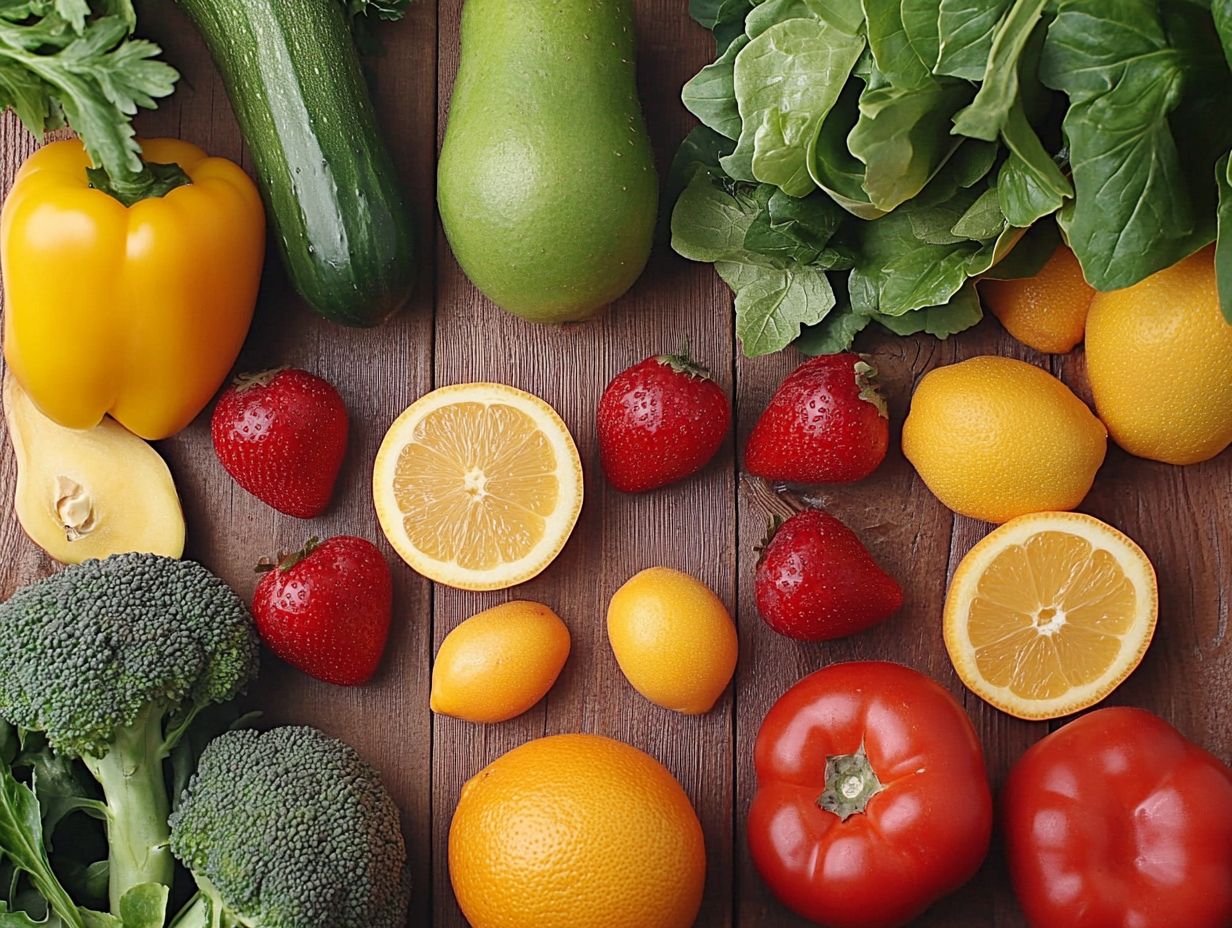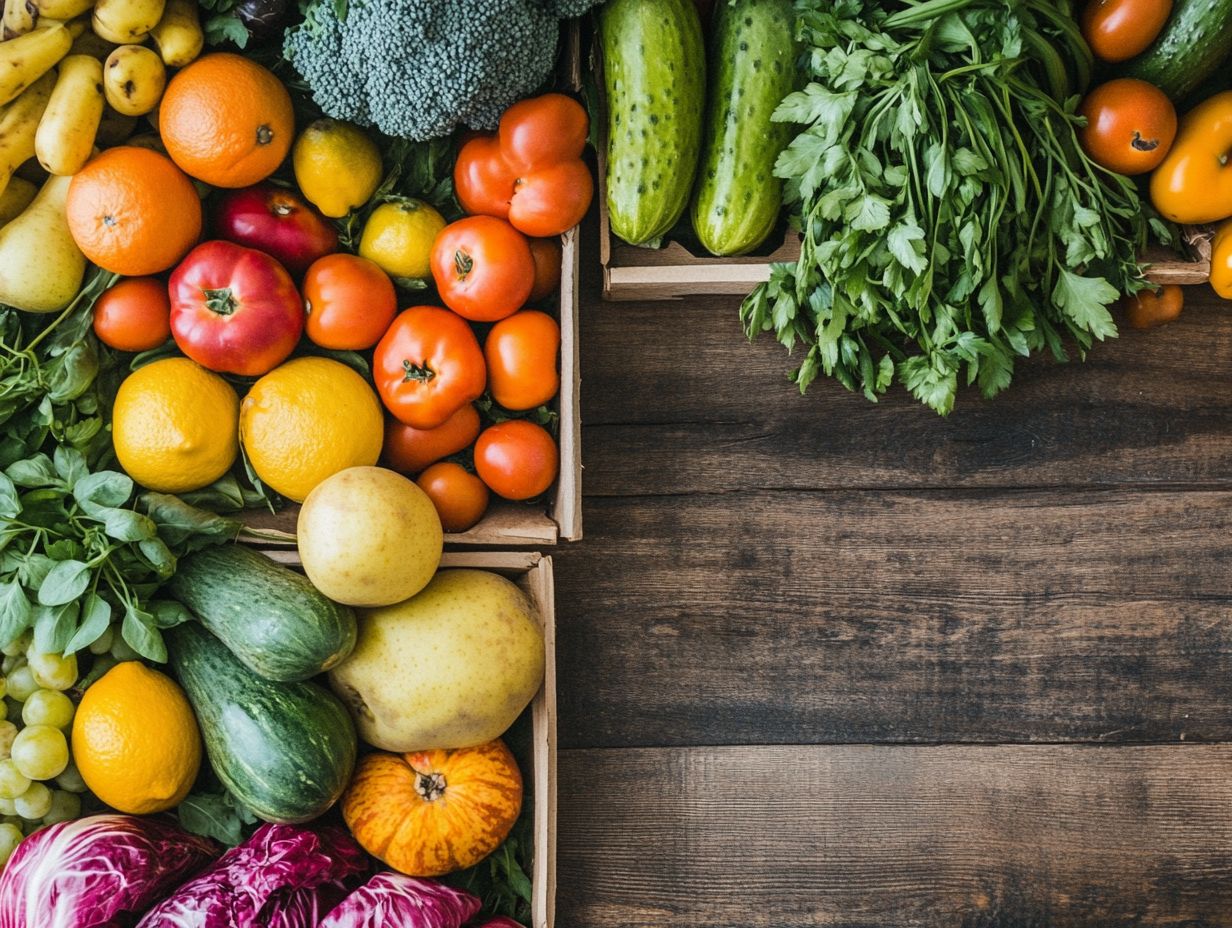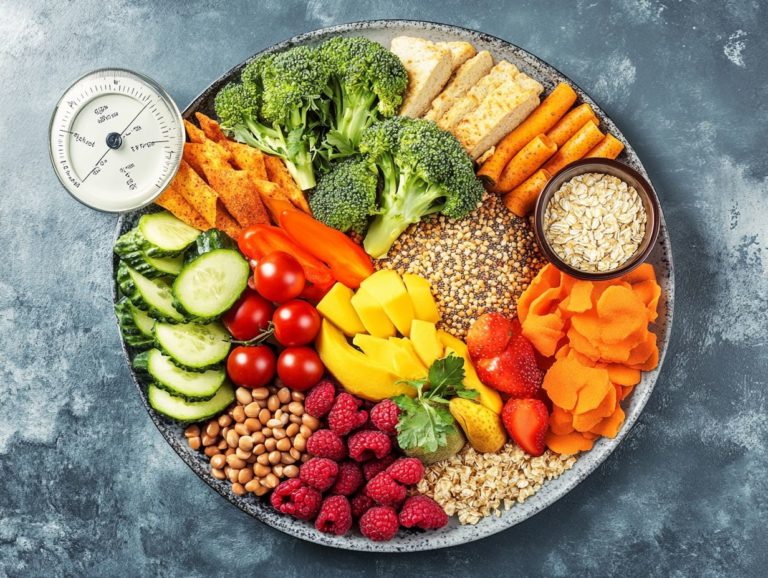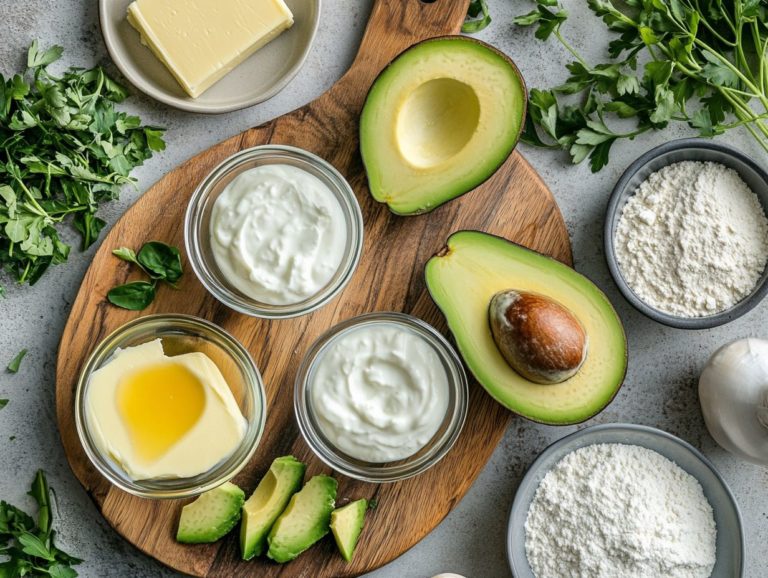How to Avoid Processed Foods Effectively
In today s fast-paced world, you may find that processed foods have become a common part of your diet, often slipping in without you even noticing.
While these convenient options can seem appealing, the health risks associated with them can be quite concerning. Let s explore the hidden dangers of processed foods together!
You ll learn how to identify processed foods by decoding food labels. You will gain practical tips for meal planning and discover delicious recipes that make incorporating nutritious whole foods into your diet easy and enjoyable.
Now is the time to take charge of your health by making well-informed food choices!
Contents
Key Takeaways:
- Choose whole, unprocessed foods to improve health.
- Learn to decode food labels to avoid processed options.
- Plan meals at home with fresh ingredients.

The Dangers of Processed Foods
Processed foods, particularly the ultra-processed ones, carry considerable risks to your health. They often lead to chronic issues like obesity, diabetes, heart disease, and non-alcoholic fatty liver disease.
These foods are usually loaded with added sugars, unhealthy fats, and sodium. This can create significant nutrient gaps in your diet. Many individuals remain unaware of the profound effects these foods can have on their overall well-being, highlighting the necessity of recognizing the potential dangers linked to processed foods.
Health Risks and Concerns
The consumption of processed foods is closely linked to rising rates of obesity, heart disease, and diabetes. This underscores the pressing need for you to be aware of the associated health risks.
Research indicates that nearly 70% of the American diet comprises processed foods, often packed with sugars, unhealthy fats, and preservatives. Experts warn that this increase worsens the obesity epidemic, where over 42% of adults are classified as obese, and heightens the risk of cardiovascular diseases and type 2 diabetes.
Nutrition headlines shape how you perceive health. They can encourage healthier choices or inadvertently glamorize harmful food trends. It s crucial for you to stay informed and critically assess dietary recommendations, ensuring that your food choices reflect a genuine commitment to better health.
The Benefits of Avoiding Processed Foods
By steering clear of processed foods and choosing whole foods instead, you can significantly elevate your nutrition and overall health. This paves the way for a healthier lifestyle.
Whole foods think fresh fruits, vibrant vegetables, wholesome grains, and minimally processed options are packed with essential nutrients that support your body s functions and lower the risk of chronic diseases.
Registered dietitians frequently endorse these dietary shifts, guiding clients like you to reach their health goals while reducing the risks tied to processed foods.
Improved Nutrition and Health

Eliminating processed foods from your diet can significantly enhance your nutrition. It fills the nutrient gaps often left by unhealthy choices, ultimately promoting better health and well-being.
By incorporating fresh foods and whole grains into your meals, you not only boost your dietary intake but also access a treasure trove of essential vitamins and minerals.
Take leafy greens like spinach and kale, for example; they provide a generous dose of vitamin K and folate. Whole grains such as quinoa and brown rice are packed with fiber and B vitamins, giving your body the fuel it craves.
Research indicates that individuals who prioritize whole foods frequently report elevated energy levels and improved digestive health. Countless testimonials from those who have made the switch highlight increased vitality and enhanced mental clarity, marking a remarkable transition toward a more wholesome lifestyle.
Embracing this nutritional approach can set you on the path to long-term health benefits. It transforms not only your diet but also your overall quality of life.
Identifying Processed Foods
Identifying processed foods is essential for making informed dietary choices. Many products may seem healthy at first glance, yet they can harbor hidden dangers.
Being discerning about what you consume enables you to protect your well-being and make choices that truly nourish you.
Understanding Food Labels and Ingredients
Understanding food labels is crucial for you as a consumer. It helps you spot hidden added sugars and sodium that often lurk in processed foods.
By carefully looking at the ingredient list, you can uncover deceptive terms and ingredients that may indicate unhealthy additives. Words like “syrup,” “dextrose,” and “monosodium glutamate” (a flavor enhancer) can signal unhealthy additives.
These hidden sugars and excessive salt can pose serious health risks over time.
Regularly consuming foods loaded with high levels of sodium and sugar can significantly increase your risk of chronic diseases such as hypertension, diabetes, and heart disease.
Staying aware of these factors is key, especially as the trend toward processed foods continues to rise and impacts public health on a much larger scale.
Tips for Avoiding Processed Foods
Start avoiding processed foods today and discover how easy it can be! You can simplify this process by employing effective meal prep strategies and exploring healthy alternatives that satisfy your cravings without sacrificing nutrition.
Meal Planning and Preparation

Meal planning and preparation are invaluable strategies for you to maintain a healthy diet and steer clear of processed foods. They ensure you always have nutritious options readily available.
By thoughtfully selecting whole foods such as fresh fruits, vegetables, whole grains, lean proteins, and healthy fats, you can create a balanced weekly menu.
Consider incorporating batch cooking into your routine. Preparing large portions of grains or roasting a variety of vegetables can save you time during hectic weeknights.
To keep your meals exciting and prevent dietary boredom, introducing variety is essential. Experimenting with different spices, cooking techniques, and cuisines can elevate your culinary experience.
Nutrition experts consistently emphasize the importance of variety. Not only does it enhance flavors, but it also ensures you receive a comprehensive array of nutrients. This makes meal planning an effective approach to long-term health.
Healthy Alternatives
Finding healthy alternatives to processed foods is essential for maintaining a nutritious diet without feeling deprived. This allows you to easily incorporate fresh ingredients and whole grains into your meals.
With just a few simple substitutions, you can enjoy satisfying dishes that are both delightful and beneficial for your health. For example, swapping white rice for quinoa or cauliflower rice not only elevates the nutritional profile but also introduces a unique texture.
Similarly, opting for Greek yogurt in place of sour cream reduces calories and enhances your protein intake.
To elevate flavors, consider infusing your dishes with fresh herbs like basil or cilantro, or experimenting with spices such as cumin or paprika. These additions can transform a meal into a vibrant culinary experience and inspire a more adventurous palate.
Incorporating Whole Foods into Your Diet
Incorporating whole foods into your diet is crucial for unlocking the full potential of improved nutrition. This journey can be made effortless and enjoyable with a selection of easy, delicious recipes that highlight the vibrant flavors of fresh fruits and vegetables.
Easy and Delicious Recipes
Transform your meals with easy and delicious recipes using whole foods. Healthy eating can be enjoyable and sustainable!
Incorporate fresh fruits and vegetables into your cooking. Create vibrant dishes that nourish your body and excite your taste buds.
These recipes allow you to be creative. Turn grocery shopping into an adventure!
With a few basic techniques, you can easily prepare meals for different diets. Healthy cooking can be simple, quick, and fun!
Frequently Asked Questions

What are processed foods?
Processed foods are those changed from their original form through methods like canning, freezing, or adding preservatives and artificial ingredients.
Why should I avoid processed foods?
Avoid processed foods because they are high in unhealthy ingredients like added sugars, sodium, and trans fats. These foods can lead to weight gain and chronic diseases.
How can I identify processed foods?
Processed foods are often in packaging with long ingredient lists and hard-to-pronounce words. Look for them in the center aisles of grocery stores, rather than in the fresh produce sections.
What are some alternatives to processed foods?
Opt for whole, unprocessed foods like fruits, vegetables, whole grains, and lean proteins. You can also make homemade versions of processed foods using fresh ingredients and limiting added sugars and unhealthy fats.
Is it okay to consume processed foods in moderation?
Enjoy processed foods occasionally, but keep them as a small part of your diet. Prioritize whole, unprocessed foods as your main nutrition source.
What are some tips for avoiding processed foods effectively?
To avoid processed foods effectively, plan your meals ahead of time, read food labels carefully, and choose fresh or frozen produce over canned. Cook more meals at home using whole ingredients, and listen to your body’s signals for mindful eating.
Start exploring delicious whole-food recipes today!






